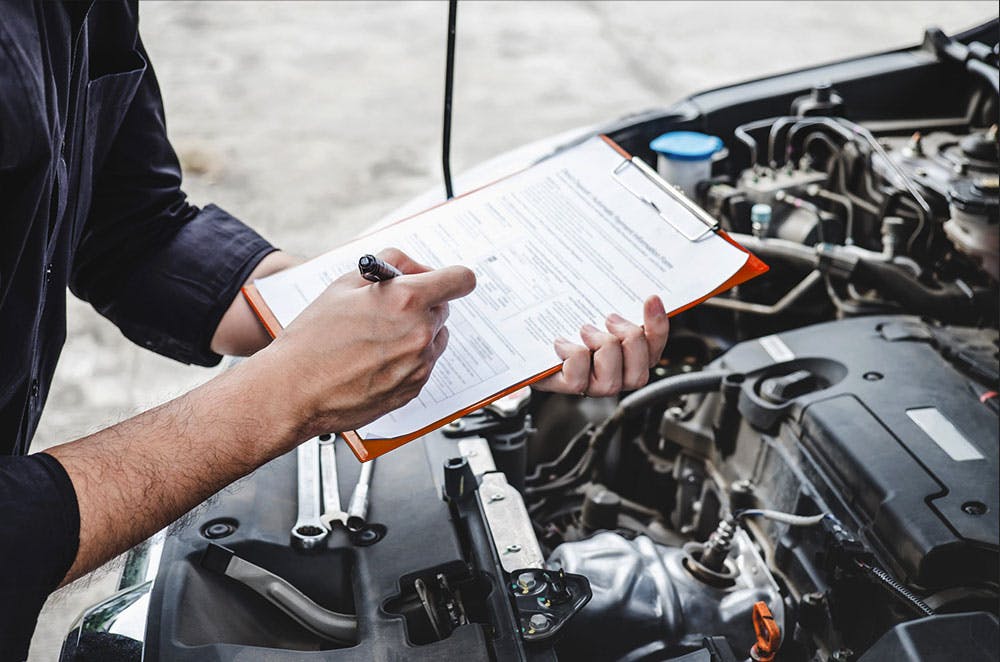All Categories
Featured
Your automobile's engine is among one of the most complicated systems in your vehicle, and every component plays an essential function in ensuring it runs efficiently. Among these, the timing belt is one of the most essential yet often neglected parts of your engine. Accountable for integrating the rotation of the crankshaft and camshaft, the timing belt makes sure the engine's shutoffs open and close at the proper times throughout the combustion process. If the timing belt stops working, it can result in serious engine damage. Right here's why timing belt substitute is important for your lorry's efficiency and longevity.
What Is a Timing Belt? The timing belt is a long, toothed rubber or composite belt that links the crankshaft to the camshaft(s) in an interior combustion engine. Its job is to keep the engine's shutoffs and pistons in sync, making sure the engine runs efficiently. The timing belt likewise controls various other critical engine features like the water pump and the power guiding pump, relying on the vehicle.
![]()
Without the correct timing, the engine's valves and pistons can collide, resulting in substantial and costly damages. Changing the timing belt on schedule is one of the finest methods to guarantee your engine operates at its best and stop costly fixings.
Why Timing Belt Substitute Issues. Protecting Against Catastrophic Engine Damage: One of the most significant risk of not changing a used timing belt is engine failure. If the timing belt breaks while the engine is running, the camshaft and crankshaft can become misaligned, causing the valves and pistons to clash. This can cause curved valves, harmed pistons, and even a damaged engine. Replacing the timing belt at the advised periods is the most effective way to avoid such devastating damage, conserving you from the tension and high cost of engine repairs or replacement.
![]()
Maintaining Engine Performance: A timing belt that's in good problem guarantees that all engine components operate in perfect harmony. If the timing belt is put on or extended, it can trigger the engine to lose power, experience harsh idling, or struggle to start. By replacing the timing belt frequently, you can keep your engine going for peak efficiency, which aids maintain ideal gas economic climate and performance.
Staying Clear Of Unexpected Malfunctions: A damaged timing belt can create your engine to quit suddenly, possibly leaving you stranded in the middle of a trip. By replacing your timing belt on schedule, you reduce the threat of sudden breakdowns that might leave you in a harmful or troublesome situation. Regular upkeep decreases the chances of experiencing these sort of disturbances, assisting you stay on the roadway much longer without fretting about your engine stopping working.
Cost-efficient Maintenance: Timing belt replacement is much less expensive than repairing or changing an engine that's been damaged as a result of a timing belt failing. While the cost of changing the timing belt might differ depending on your lorry and its area, it is much more budget friendly than the costs connected with major engine repair services or substitutes. Changing your timing belt at the recommended periods can save you a significant amount of money over the long run by protecting against damage to your engine.
When Should You Replace Your Timing Belt? The timing belt doesn't last for life, and many manufacturers recommend changing it in between 60,000 and 100,000 miles. However, the precise timing depends on your vehicle's make, design, and driving conditions, so it's vital to check your owner's guidebook for certain guidance.
Indications that your timing belt may require interest consist of uncommon engine noises (such as a high-pitched whining or ticking sound), trouble starting the engine, or a decline in engine efficiency. If you discover any of these indicators, it's vital to have the timing belt inspected by an expert technician.
![]()
Conclusion. The timing belt is a tiny but important part of your engine, and normal substitute is vital to keeping your car's efficiency and preventing expensive damages. By remaining on top of timing belt maintenance, you'll guarantee your engine operates successfully, stay clear of unanticipated break downs, and safeguard your cars and truck from major repair work. Maintain an eye on your car's advised timing belt replacement routine, and constantly talk to a trusted technician to maintain your engine running smoothly for years ahead.
What Is a Timing Belt? The timing belt is a long, toothed rubber or composite belt that links the crankshaft to the camshaft(s) in an interior combustion engine. Its job is to keep the engine's shutoffs and pistons in sync, making sure the engine runs efficiently. The timing belt likewise controls various other critical engine features like the water pump and the power guiding pump, relying on the vehicle.

Without the correct timing, the engine's valves and pistons can collide, resulting in substantial and costly damages. Changing the timing belt on schedule is one of the finest methods to guarantee your engine operates at its best and stop costly fixings.
Why Timing Belt Substitute Issues. Protecting Against Catastrophic Engine Damage: One of the most significant risk of not changing a used timing belt is engine failure. If the timing belt breaks while the engine is running, the camshaft and crankshaft can become misaligned, causing the valves and pistons to clash. This can cause curved valves, harmed pistons, and even a damaged engine. Replacing the timing belt at the advised periods is the most effective way to avoid such devastating damage, conserving you from the tension and high cost of engine repairs or replacement.

Maintaining Engine Performance: A timing belt that's in good problem guarantees that all engine components operate in perfect harmony. If the timing belt is put on or extended, it can trigger the engine to lose power, experience harsh idling, or struggle to start. By replacing the timing belt frequently, you can keep your engine going for peak efficiency, which aids maintain ideal gas economic climate and performance.
Staying Clear Of Unexpected Malfunctions: A damaged timing belt can create your engine to quit suddenly, possibly leaving you stranded in the middle of a trip. By replacing your timing belt on schedule, you reduce the threat of sudden breakdowns that might leave you in a harmful or troublesome situation. Regular upkeep decreases the chances of experiencing these sort of disturbances, assisting you stay on the roadway much longer without fretting about your engine stopping working.
Cost-efficient Maintenance: Timing belt replacement is much less expensive than repairing or changing an engine that's been damaged as a result of a timing belt failing. While the cost of changing the timing belt might differ depending on your lorry and its area, it is much more budget friendly than the costs connected with major engine repair services or substitutes. Changing your timing belt at the recommended periods can save you a significant amount of money over the long run by protecting against damage to your engine.
When Should You Replace Your Timing Belt? The timing belt doesn't last for life, and many manufacturers recommend changing it in between 60,000 and 100,000 miles. However, the precise timing depends on your vehicle's make, design, and driving conditions, so it's vital to check your owner's guidebook for certain guidance.
Indications that your timing belt may require interest consist of uncommon engine noises (such as a high-pitched whining or ticking sound), trouble starting the engine, or a decline in engine efficiency. If you discover any of these indicators, it's vital to have the timing belt inspected by an expert technician.

Conclusion. The timing belt is a tiny but important part of your engine, and normal substitute is vital to keeping your car's efficiency and preventing expensive damages. By remaining on top of timing belt maintenance, you'll guarantee your engine operates successfully, stay clear of unanticipated break downs, and safeguard your cars and truck from major repair work. Maintain an eye on your car's advised timing belt replacement routine, and constantly talk to a trusted technician to maintain your engine running smoothly for years ahead.
Latest Posts
Comprehensive Auto Repairs at Montclare Auto Repair - See Our Offerings
Published Apr 14, 25
2 min read
Effortless Coin Conversion with Coinstar and WyHy Federal Credit Report Union
Published Apr 13, 25
1 min read
Full Circle Strategic Marketing - Supercharge Sales Opportunities with Personalized Marketing Plans
Published Apr 13, 25
2 min read
More
Latest Posts
Comprehensive Auto Repairs at Montclare Auto Repair - See Our Offerings
Published Apr 14, 25
2 min read
Effortless Coin Conversion with Coinstar and WyHy Federal Credit Report Union
Published Apr 13, 25
1 min read
Full Circle Strategic Marketing - Supercharge Sales Opportunities with Personalized Marketing Plans
Published Apr 13, 25
2 min read